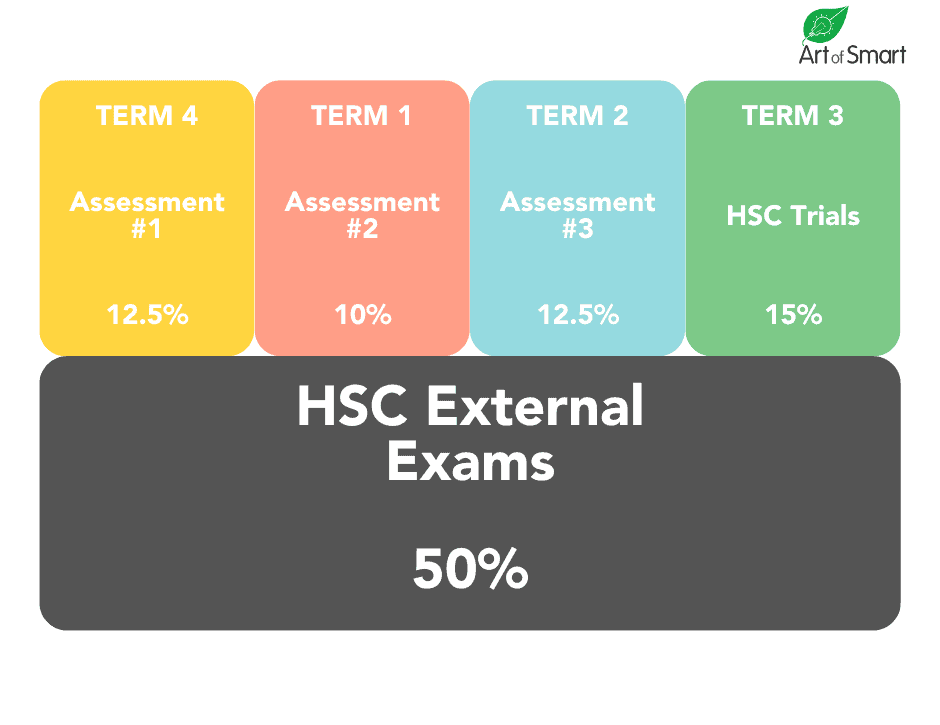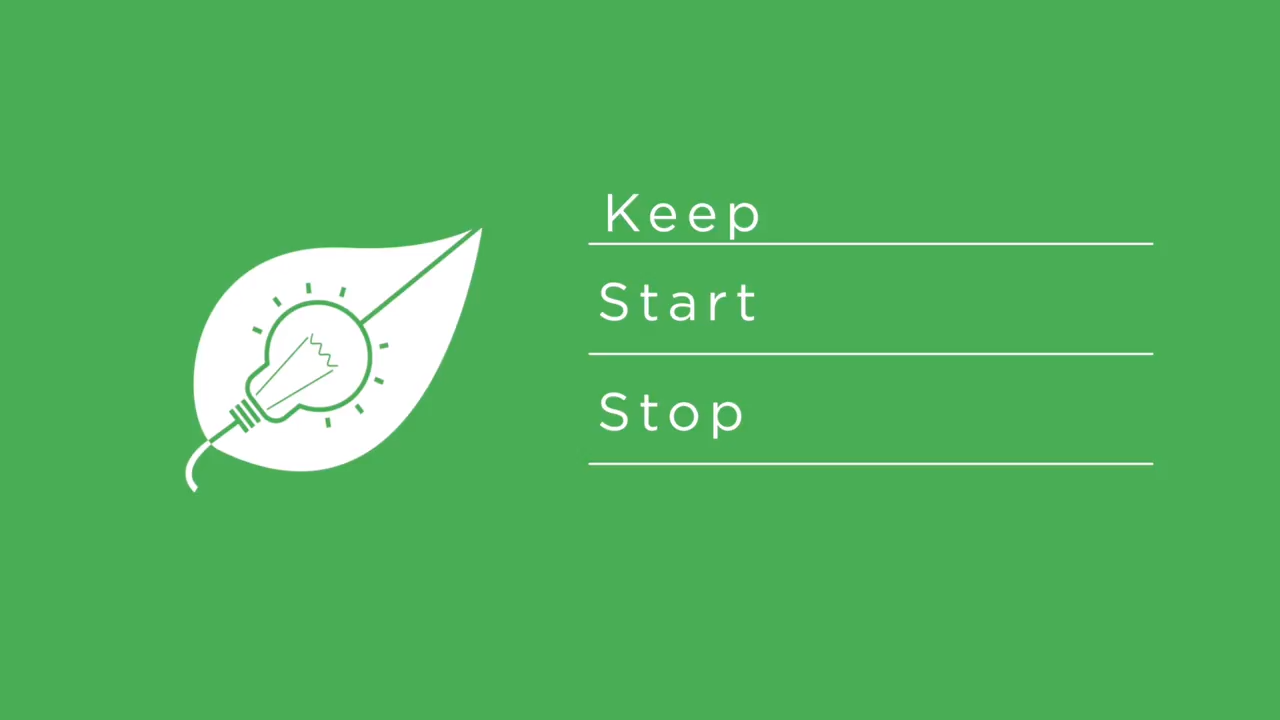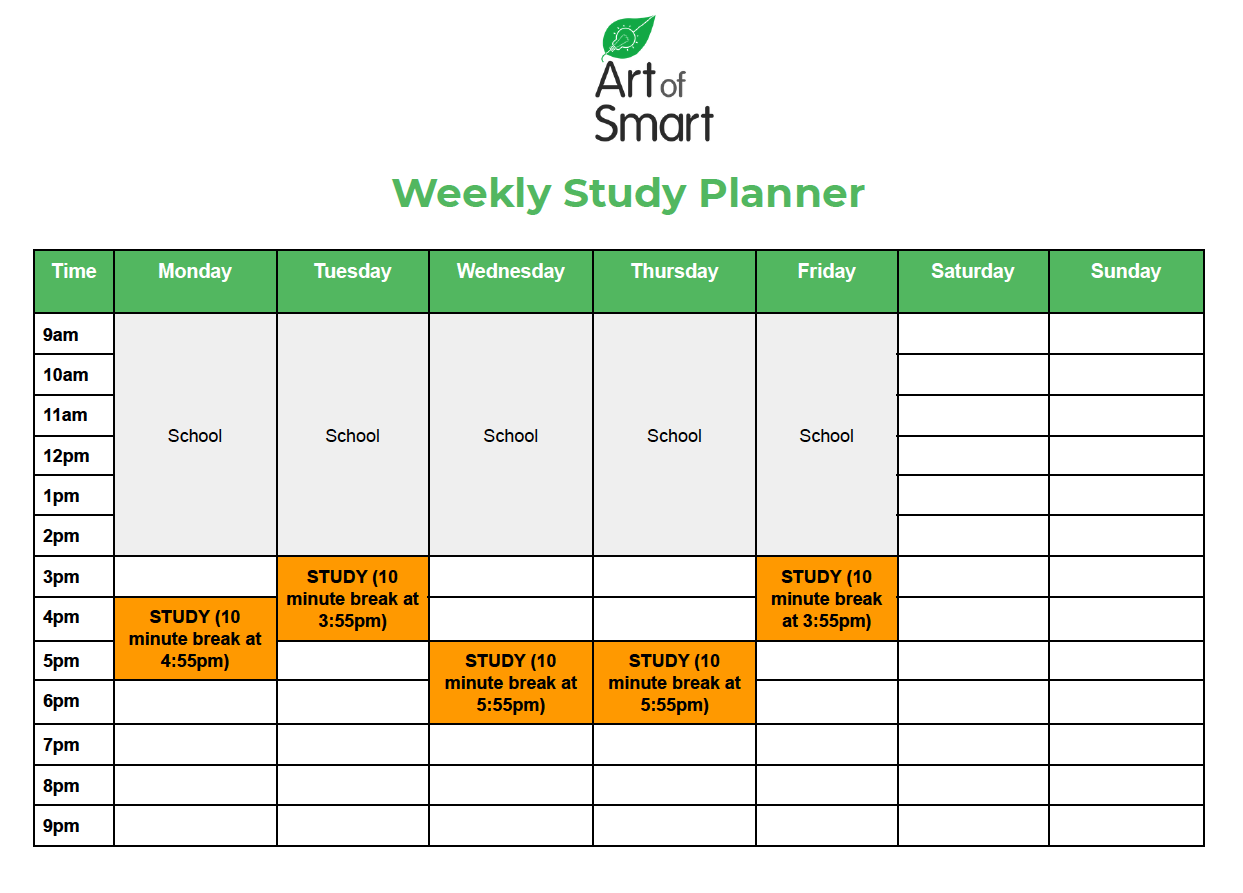Just finished your HSC Trial Exams? You’re probably wondering about the best way to prepare for HSC exams and achieve your dream ATAR.
Well look no further! Here are the Top 10 common mistakes students make after their HSC Trial Exams and how you can avoid them.
What are you waiting for? Let’s jump right in!
Mistake #1: Giving up and losing motivation
Mistake #2: Relaxing for too long!
Mistake #3: Studying too hard, too early
Mistake #4: Not fixing areas of weakness
Mistake #5: Not changing your study strategy but expecting better results
Mistake #6: Not having a study plan
Mistake #7: Waiting too long to get help
Mistake #8: Completing past papers without a good strategy
Mistake #9: Avoiding extended responses and essays
Mistake #10: Not having a feedback loop
Mistake #1: Giving up and losing motivation
One of the most common mistakes students make is they give up and lose motivation after getting their HSC Trial Exam results back.
They perhaps didn’t perform as well as they had hoped and as a result, often start to feel worried about the HSC. Many students find themselves wondering, “Why do I even bother trying? There’s no way I can improve in time for my HSC and pick my marks up.”
But it’s important to remember that after all, your HSC external exams are worth 50% of your final mark! This means your Trial exams are usually worth around 15% overall.
Of course, your HSC Trials are an important internal exam, but if you are unhappy with your results, you still have a significant opportunity to turn your marks around!
What you should be focussing on may be slightly different based on your HSC Trials results. Maybe instead of working towards getting a high ATAR, your focus could be more about maximising university options and getting additional bonus points by achieving a certain Band in a subject.
The weeks after HSC Trials should be about doubling-down, not giving up!
Looking for some extra support to maintain motivation? Our HSC Bounce Back program is founded on the principle that you have 50% of your HSC marks still left! Our tutors travel to meet their students in Chatswood, provide tutoring support in Burwood, and all across NSW! You can also join us online or at our state of the art campuses in Hornsby and the Hills!
By working with awesome tutors and a group of like-minded students, you will be able to draw on the team’s motivation and stay on track to ace the HSC.
Mistake #2: Relaxing for too long!
Another common mistake students make is to relax for far too long after their HSC Trials!
A lot of students will reward themselves after exams with a long break of chilling out, graduation, formal, and other fun activities. Of course rest and recovery is important and you want to be healthy going into your HSC, but the problem is when the relaxation period just doesn’t end!
This means that the amount of studying students need to do piles up in the 2-3 weeks leading up to their HSC. At this point, you may feel the need to cram because you haven’t given yourself enough time to really do the work.
So, once you finish your HSC Trials, the most effective rest and relaxation period should really be around 3-5 days. Take this time to reward yourself and do the things you love without the stress of school so that you’re re-energised and motivated for the weeks ahead!
This is why our HSC Bounce Back program starts in Week 7! With most HSC Trials finishing around Week 5, this gives you a whole week to rest and recover before starting the program.
We also help you systematically plan for the weeks leading up to HSC exams so that you have great structure and support to make the most of the time period.
Mistake #3: Studying too hard, too early
On the opposite end of the spectrum is another common mistake students make: studying too hard, too early!
Some students feel super motivated and start putting in massive hours of study and don’t take the time to relax and look after themselves. This typically leads to burnout and students might find themselves hitting a massive wall the week before exams start.
If you think of a professional athlete and their winning training strategy, their key is to work hard, but taper their practice.
So if you’re feeling super motivated and eager to jump into preparing for the HSC, don’t forget to carve out time for things you enjoy!
Little things like spending Friday nights with friends, watching some episodes on Netflix, or maintaining an exercise routine can be so valuable. Not just from a mental health perspective but also from a physical energy management perspective.
If you’re having some trouble striking a good balance between rest and study, our HSC Bounce Back program is designed specifically to map it all out so that you’re doing the right amount of work across the 8-week period.
Mistake #4: Not fixing areas of weakness
Now, zooming into some specific study mistakes students make after their HSC Trials, one of the biggest ones is not taking the time to fix weak areas.
As teachers go through solutions and sample Band 6 responses for Trials exams, students often make note of what to do next time.
But imagine if you were playing basketball and you missed a shot, so your Coach gave you advice on how to improve. Would you be able to make the shot just by hearing your Coach’s advice?
Not necessarily, because you haven’t actually practised and implemented your Coach’s suggestion! Just because you’ve been told verbally how to do better, doesn’t mean that you’ll be able to get it right away without practice.
Instead, we recommend looking at HSC Trials as a powerful diagnostic of all the weak areas you can now work on fixing! Upon identifying these errors, the most important step is to go and retake those questions to fix any mistakes and resubmit it for feedback.
One way we help you focus on the weak areas is through our HSC Bounce Back program where we use the traffic lights diagnostic with students to identify any areas of weakness across all modules and topics.
We also provide 1 on 1 sessions for program students so that we can specifically dive into some of the weak areas your individual Trials have identified. This way students will get the targeted and personalised support they need!
Mistake #5: Not changing your study strategy but expecting better results
Along a similar line, students also make the major mistake of not developing better study strategies after their HSC Trials.
If you aren’t happy with how you’ve gone in your Trials, you need to change the way you’re studying for exams!
When you change your study strategy, it’s important to take some time to reflect on how you studied before Trials. Reflect on what you did in the lead up to exams, the day before, the night before, and on the day.
Then using this, come up with a ‘Keep, Start, Stop’ list to think about:
- Helpful strategies you will continue doing (Keep)
- New study habits you will adopt (Start)
- Unproductive habits that you will avoid in the future (Stop)
Without evaluating and reflecting, you’ll fall into the same habits that led to bad results.
If you’re looking to develop stronger and healthier study habits, our HSC Bounce Back program is for you! We understand how you should be approaching each subject and have developed the ultimate guide to help you implement a good study structure.
Mistake #6: Not having a study plan
Another closely related mistake many students make after their HSC Trials is that they ditch the study plan. They may know what needs to be done in a general sense, but not with a clear plan of what to do, when to do it, and when it needs to be completed.
Even after planning out everything that needs to be done for each subject, a lot of students don’t know when they need to do this all by and end up cramming massively in the week before HSC Exams. They also don’t know when they are going to do this work during the week.
While this example isn’t super detailed, it shows how you can map out times to study:
Not having a clear study plan after Trials can really break your momentum and make it much harder to prepare for the HSC and bounce back post-Trials.
Which is why we recommend planning out 3 key things:
- Have a clear list of everything you need to do between now and HSC exams
- Set yourself key milestones of what weeks everything needs to get done by
- Make a clear plan of when you are going to do the work during the week and update the study plan you had before Trials
This is where the HSC Bounce Back program can come in handy! We’ve designed the program so that it essentially builds a study plan for you and helps take the pressure off of studying.
Mistake #7: Waiting too long to get help
A common mistake students make is waiting too long to seek support.
Students usually don’t have an opportunity to revise content before Trials since they are still learning the content. But this means that they have to revise the entire course in the weeks between Trials and HSC, which can be quite overwhelming!
It can be really easy to get stuck on certain topics because they’re difficult to understand and you’re unfamiliar with the content. So to really build a good mastery of the content, it’s important to get help early on!
If you were an athlete in the Commonwealth Games gearing up for that final sprint, would you be trying to do it without a coach?
This is where students make the mistake of waiting too long to get support and try to prepare for the HSC individually. However, the longer you wait, the more time you lose and the harder it gets to find help.
So after your HSC Trials, make sure to find your support system as early as possible! Build a good feedback loop with your teachers, peers, and parents to make the most of your time.
Our HSC Bounce Back program will help you find that community support by giving you a chance to work with compassionate tutors and like-minded students so that you know you’re not alone!
We provide HSC support at our state of the art Hills and Hornsby campuses. Or, our tutors can come to you and provide personalised lessons in Burwood, Castle Hill, or wherever suits you!
Mistake #8: Completing past papers without a good strategy
After HSC Trials, students often make the mistake of jumping right into past papers without mapping out a good strategy.
The problem with this is that a 3-hour practice paper can be quite stressful and procrastination-inducing!
You need high levels of motivation to get there. So if you’re not very motivated, trying to dive in and do it is a recipe for failure! As a result, students find themselves delaying and procrastinating past papers, meaning they end up not completing enough practice responses.
The trick is to not try to do full past papers, especially during those early weeks. You can break it up into chunks and complete practice papers in little bits, still under timed conditions.
For example, you might choose to just do a 20 minute multiple choice section one evening and then a 40 minute short answer section the following week!
It’s less daunting to find little 30 or 40 minute blocks of time in your day to just do one section under timed conditions so that you’re completing past papers bit by bit, without the procrastination.
Of course, as you get closer to the HSC, it’s important to also complete full 3 hour practice papers, but the key is to build your way up towards those massive exams!
Looking for HSC past papers? Check out our comprehensive master list here!
Another mistake when it comes to not completing practice papers strategically is that students often don’t resolve the mistakes they made in their Trials and just move on and continue with other practice papers.
If you haven’t yet fixed your mistakes, you’re going to be repeating your mistakes in exams. So a major part of your practice paper strategy should be to revisit and reattempt the mistakes you made in your Trials!
If you’re having a hard time strategically planning out your practice papers, our HSC Bounce Back program integrates HSC exam-style questions for every single syllabus dot point and then closer to the HSC, we’ll layer-in unique Art of Smart mock exams. This way, you’re working through shorter individual questions AND getting exam technique practice!
Mistake #9: Avoiding extended responses and essays
When trying to get through practice papers, it’s often easier to just do multiple choice and short answer questions. So a lot of students make the mistake of avoiding essays and extended responses!
But the important thing to remember is that for a lot of subjects, essays actually make up a huge percentage of your exam. For example, extended responses make up 40% of your Economics exam while they make up a whopping 50% of your Modern History exam!
| Subject | Percentage of exam |
|---|---|
| Drama | 100% |
| Society and Culture | 50% |
| Geography | 40% |
| Ancient History | 50% |
| Modern History | 50% |
| Economics | 40% |
| Business Studies | 40% |
| Legal Studies | 65% |
| Visual Arts | 50% |
You need to be writing frequent practice responses and essay plans before the HSC and you should ideally write around 1 full essay per week!
The best part of this is that preparing for an essay is also helping you prepare for short answer questions because every paragraph you write can also work as a short response! Essentially, the time you spend on extended responses are hugely beneficial.
This is why we’ve made sure to integrate extended responses and essay-writing practice into our HSC Bounce Back program with a clear weekly plan to help you stay accountable!
Mistake #10: Not having a feedback loop
Sometimes getting feedback on assessments can feel a little daunting. But not getting any feedback is a major mistake students make!
After all, the only way to improve and know you’re getting better is to have a feedback loop where someone takes a look at what you’ve done, gives you feedback on it, and you then take action and ask for more feedback.
Many students will keep avoiding feedback and end up submitting work right before the HSC. The problem with this is that students often get very little feedback at this stage because teachers have too many essays to mark!
Instead, we recommend 2 easy tips to make sure you are getting a good feedback loop:
- Start getting feedback as early as possible in the journey
- Don’t just get one loop, get multiple loops where you get feedback, make changes, then get more feedback on those changes
The point is, you want to be getting feedback early and frequently. Otherwise, you may feel like you’re doing well, but keep writing the same answers which aren’t of the best quality!
That’s the value of working with an amazing Art of Smart tutor with the HSC Bounce Back program! You’re guaranteed to be getting early, fast and frequent feedback from your tutor in the weeks between Trials and HSC Exams.
So there you have it!
We’ve walked you through the Top 10 mistakes students make after their HSC Trials and some simple tips to avoid making them. Follow these tips and you’ll be all set to bounce-back from Trials and ace the HSC!
If you’re looking for other helpful resources to help you prepare for your final HSC exams, check out our guides below:
- 5 HSC Exam Stress Tips to Help You Stay Cool, Calm and Collected!
- How to Study for the HSC Exams in 30 Days!
- How to Prepare for HSC Exams in Your Final Term
- HSC Exams: Why You Shouldn’t Study For Your First Exam First
Looking for a tutor to support you bounce back to ace your HSC exams?
We’ll help you nail the HSC content, get a rock-solid study plan, and develop your exam technique so you are ready for your HSC Exams!
Nail the HSC after trials with an expert tutor in Campbelltown to support you!
With small groups classes, or personalised lessons conducted one-on-one in your home or at one of our state of the art campuses in Hornsby or the Hills, we can help you regardless of where you live!
To find out more and get started with an inspirational tutor and mentor get in touch today!
Give us a ring on 1300 267 888, email us at [email protected] or check us out on TikTok!
Maitreyi Kulkarni is a Content Writer at Art of Smart Education and is currently studying a Bachelor of Media and Communications (Public Relations and Social Media) at Macquarie University. She loves writing just about anything from articles to poetry, and has also had one of her articles published with the ABC. When she’s not writing up a storm, she can be found reading, bingeing sitcoms, or playing the guitar.







